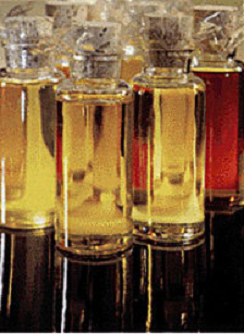Print Edition: September 11, 2013
The Science
A recent study conducted by the University of Guelph is now revealing just how addictive high fructose corn syrup really can be. In this study, rats were fed Oreos, and were found to be similar in their addictive behaviours as when given cocaine. When the rats were given less palatable food, such as rice cakes, no similar effect was observed. Given the rapidly rising rates of obesity, which according to the NHANES have doubled since 1980, this study rasises some grave concerns.
“We are not rats,” Dr. Leri, one of the researchers and an Associate Professor of Neuroscience at Guelph, stated in the Canadian Association of Neuroscience press release. “But our children do not think too much about the impact of sweets on their brain and behaviour. There is now convincing neurobiological and behavioural evidence indicating that addiction to food is possible. Our primary objective is to discover biological predictors of vulnerability to develop excessive consumption of high fructose corn syrup.”
Other studies have corroborated the powerful effect sugar has on mammals. Researchers from Princeton University have long been studying sugar addiction, conducting experiments that show withdrawal, craving, and relapse in sugar-addicted rats. Considering that animal studies have shown cocaine is extremely addicting—compared to or even worse than heroin—these studies may be revealing a real health epidemic.
You, me, and UFV
Though it is shocking that it may be as addicting as cocaine, I don’t think it is a surprise to anyone that sugar is addicting; we’ve all suffered sugar cravings. The same old justifications are bandied about as with smoking or any other problem, “I should quit … I will quit after … I can eat healthier, but…” It doesn’t seem like a big deal until you actually sit down and think about just how many processed foods you consume in one day. Nor does swapping salt for sugar change anything – salts such as MSG are notoriously addictive and bad for you.
We all pay lip service to the horrors of sugar and salt, but the truth of the matter is that most of us don’t follow through with a healthy diet. Unfortunately, bad food is readily available, fast and cheap. And it tastes amazing.
One study from Boston University found that rats suffer depression from sucrose withdrawal, a depression which can lead to compulsive eating. And there’s the other problem. When stressed out from school, it is an especially great pleasure to enjoy a treat or two… or three. And the cycle begins. Binge eating (along with its dangerous cousin bulimia) has become a serious problem. It’s not just that we’re eating badly; we’re also eating too much.
Yet the stakes are so high. According to the World Health Organization, 1.4 million people died of diabetes in 2011, and 7 million of heart disease (the number one killer worldwide) – both diseases directly related to weight problems and obesity. Sugar addiction really isn’t that different from cocaine, after all. Even in the face of death, food addicts and drug addicts alike aren’t willing to quit.
So though Coca-Cola has since long removed cocaine from its actual ingredients, its high fructose corn syrup content—containing the equivalent of 10 teaspoons of sugar per can—may be just as direly addicting.


